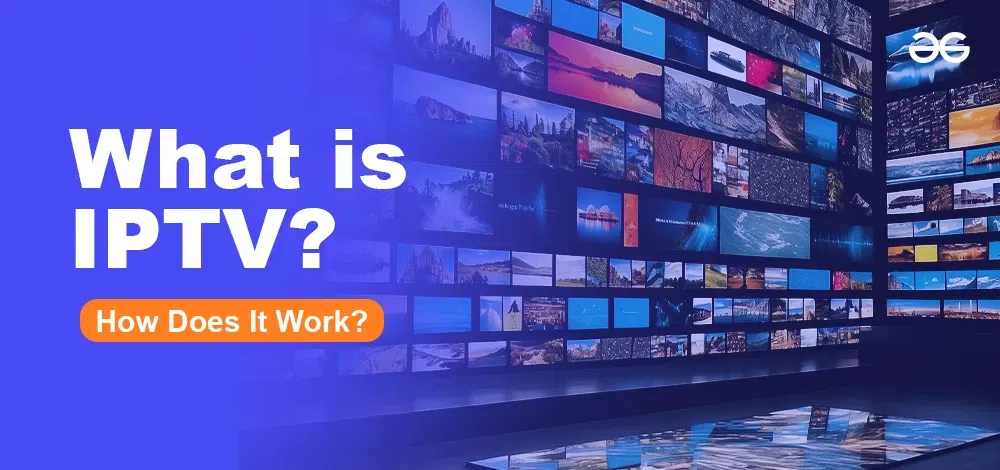In recent years, the way we consume television has undergone a significant transformation. Traditional cable and satellite services are no longer the only way to access a wide array of channels and content. Enter IPTV (Internet Protocol Television), an innovative technology that is reshaping the entertainment landscape. In this article, we’ll explore what iptv is, how it works, its advantages, and how it is changing the future of television.
What is IPTV?
IPTV stands for Internet Protocol Television, a digital television service that delivers TV content through the internet rather than traditional terrestrial, satellite, or cable systems. IPTV streams content using the Internet Protocol (IP) suite, which is the same protocol used for transmitting data over the internet. By using the internet as the delivery medium, IPTV offers a more flexible and user-centric approach to viewing television, including live broadcasts, on-demand content, and even interactive services.
How IPTV Works
IPTV operates by converting video content into a digital signal, which is then transmitted over an internet connection. Unlike traditional broadcast television that sends signals via radio waves or cables, IPTV uses IP networks (such as broadband internet connections) to deliver content to the user’s device.
There are three primary types of IPTV services:
- Live IPTV: Similar to traditional TV channels, live IPTV streams real-time broadcasts of TV shows, movies, sports, and news. The key difference is that these broadcasts are transmitted over the internet.
- Time-shifted IPTV: This feature allows viewers to watch content at a later time. It includes services like catch-up TV, where users can watch shows that aired earlier, as well as DVR-like functionalities, where users can pause, rewind, and fast-forward live broadcasts.
- On-demand IPTV: This allows users to select and watch content whenever they wish, much like popular streaming platforms like Netflix, Hulu, and Amazon Prime Video. Users can browse a library of movies, series, and documentaries to watch at their own convenience.
The Benefits of IPTV
IPTV provides several advantages that are attracting both consumers and content providers. Below are some of the most significant benefits:
1. Wide Range of Content
IPTV offers a vast array of content, including live channels, movies, sports events, international programming, and on-demand video. Unlike traditional cable TV, IPTV services are not restricted by geographic location or expensive licensing deals, allowing access to a broader range of content, even from international sources.
2. Flexibility and Convenience
With IPTV, users have the freedom to watch content on multiple devices such as smart TVs, laptops, tablets, and smartphones. The ability to access content from anywhere with an internet connection makes it ideal for those who are always on the move. Moreover, on-demand services eliminate the need for rigid programming schedules, allowing users to watch content when it fits their time.
3. Cost-Effectiveness
Traditional cable and satellite subscriptions often come with high installation costs, equipment rental fees, and bundles that include unwanted channels. IPTV services are typically more affordable, offering customizable packages based on the channels and content the viewer desires. Some services even offer free IPTV options, further cutting costs for consumers.
4. Interactive Features
Many IPTV platforms come equipped with interactive features such as video-on-demand, video conferencing, and even gaming services. These interactive features are enabled by the broadband connection, making IPTV a more immersive entertainment experience compared to traditional TV systems.
5. High-Quality Streaming
IPTV often delivers better video quality than traditional broadcast services. With high-definition (HD) and ultra-high-definition (4K) streaming options, users can enjoy crisp visuals and vibrant colors, provided they have a high-speed internet connection.
Challenges and Considerations
While IPTV has several advantages, there are some challenges and considerations to keep in mind before adopting it as your primary method of television viewing.
1. Internet Dependency
IPTV relies heavily on a stable and fast internet connection. Without adequate bandwidth, users may experience buffering, interruptions, or a decrease in video quality. This makes IPTV less reliable in areas with poor or inconsistent internet service.
2. Legal and Copyright Concerns
Since IPTV provides access to a wide range of content, there are some concerns around illegal streaming services that bypass licensing agreements. Subscribing to unauthorized IPTV providers can result in legal issues or poor service quality. It is essential to use legitimate IPTV services that comply with copyright laws.
3. Hardware Compatibility
To fully enjoy IPTV services, you may need compatible hardware like a smart TV, set-top box, or streaming device. Although most modern TVs support IPTV applications, older models might require additional hardware for streaming.
The Future of IPTV
The future of IPTV looks bright as more consumers seek alternatives to traditional television models. With the rise of ultra-fast 5G networks and improved broadband infrastructure, IPTV will become even more accessible, with fewer limitations related to internet speed and connectivity. Additionally, as more content providers explore ways to deliver exclusive content, IPTV is likely to integrate more live events, interactive TV, and premium streaming options.
IPTV is also expected to see more integrations with other technologies like artificial intelligence (AI) and machine learning, enabling personalized recommendations and automated content curation based on user preferences. This can further enhance the viewing experience by offering relevant content and reducing the need for manual searches.
Conclusion
IPTV is transforming the way we consume television, offering a more flexible, convenient, and cost-effective solution compared to traditional methods. With its wide array of content, interactive features, and superior quality, IPTV is appealing to an increasingly diverse audience. While challenges such as internet speed and legality must be addressed, the overall benefits of IPTV ensure that it will remain a key player in the entertainment industry for years to come.
As internet infrastructure continues to improve, and as content providers adapt to new demands, IPTV will likely grow in popularity and offer even more options for users worldwide. Whether you are a sports fan, a movie buff, or simply someone looking for a new way to enjoy television, IPTV is undoubtedly worth exploring as the future of television viewing.
